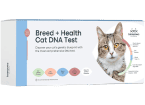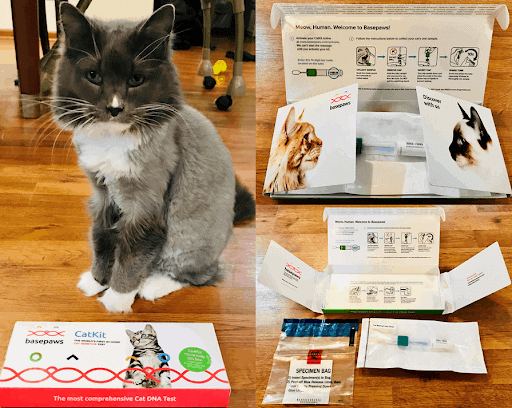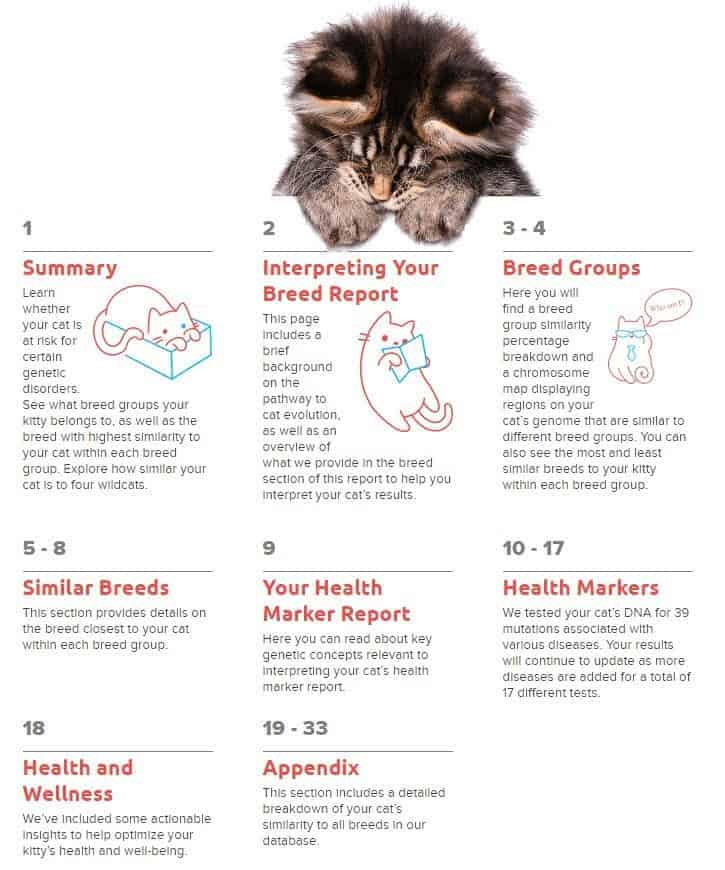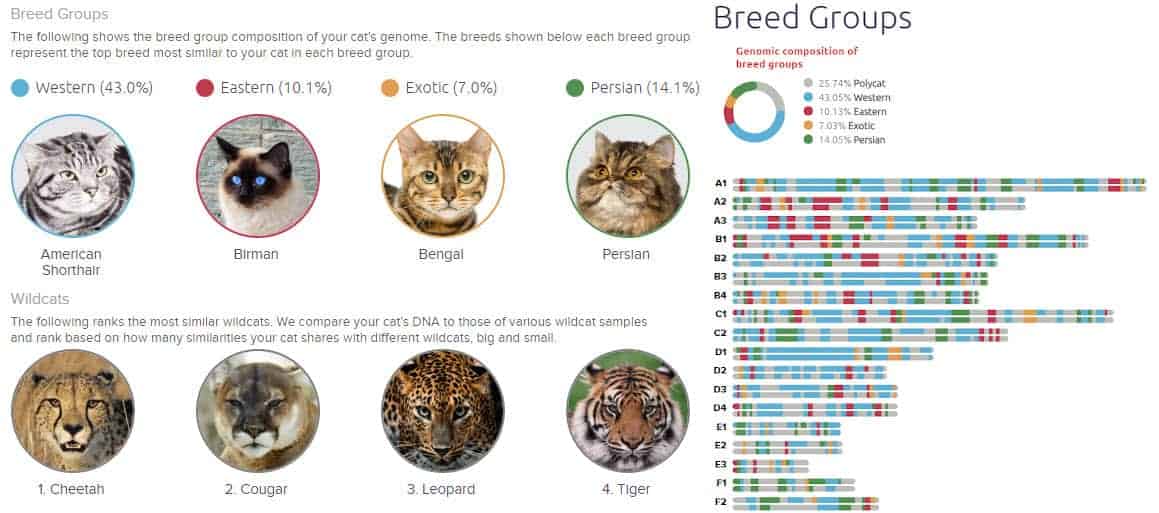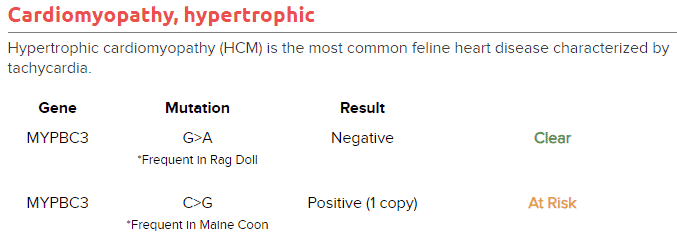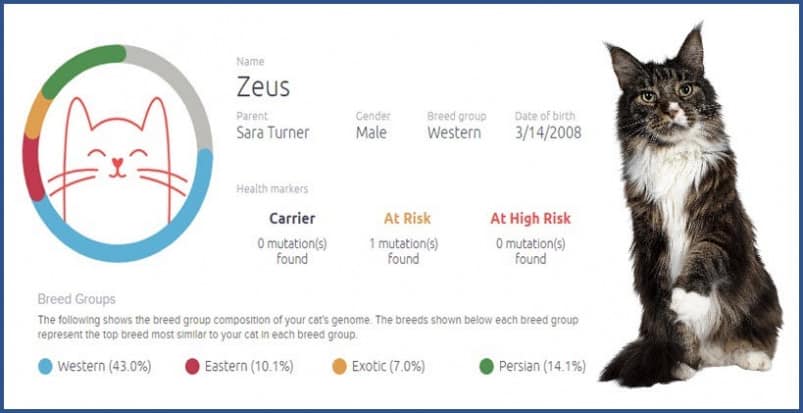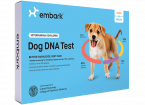Basepaws Overview: Reveal the Secrets Hidden In Your Cat’s DNA
Finding a DNA test specifically designed for cats can be difficult, as many options are either inaccurate or focused mainly on dogs. Basepaws is a notable exception, with a clear focus on feline genetics. I decided to try it for my senior cat, Zeus, to see how well it delivers on its promises.
If you’re looking to learn more about your cat’s breed or identify potential health risks, Basepaws offers targeted insights that could be helpful. I evaluated the test’s reliability, the level of detail it provides, and where it could be improved to give you a clear picture of what to expect.
Let me give you a hint: Basepaws offers great value for money, and the results it provides are both insightful and fascinating. However, it’s important to note that compared to similar tests, the turnaround time for receiving the results can be quite lengthy.
Collecting the Sample and Waiting for Results
The Basepaws cat DNA test kit comes with everything necessary to gather the sample and return it to the lab. This includes easy-to-follow picture instructions, a swab, and return shipping materials with a prepaid label.
The kit is simple to use, provided your cat is willing to cooperate. For most cats, it’s comforting to be wrapped in a towel and held close during the sample collection process.
Sample processing happens according to the highest scientific standards. Basepaws has veterinarians and genetic counselors on staff to discuss any questions you might have about your results. You get an email notification once your results are in.
The main drawback for me with Basepaws was the time to results. Mine took almost 11 weeks to come in. This is much longer than the industry average of 2 – 4 weeks.
| SAMPLE TYPE | PRE-PAID SHIPPING | TIME TO RESULTS |
| Cheek swab | Yes | 6 – 11 weeks |
Get Basepaws’ Easy Accurate Cat DNA Test!
Basepaw’s Cat DNA Breed Test
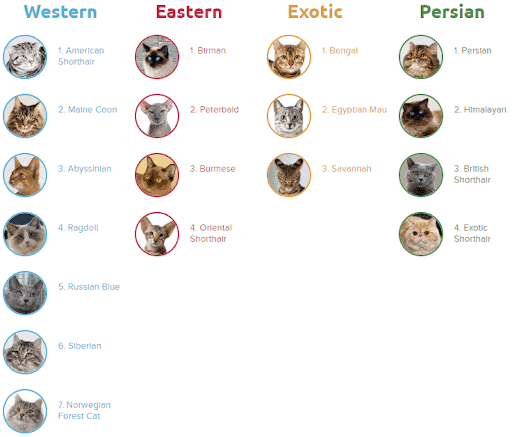
The breed report also breaks down your cat’s DNA into four breed categories, and then into specific breeds. The information is organized this way since cats typically don’t have purebred parents (unlike many dogs). Jump to the breed profiling section to learn more.
Find Out What Breeds Make Up Your Cat!
Basepaw’s Cat Genetic Health Test
Basepaws offers a genetic health DNA test for cats that provides essential insights into their health. This test includes screening for both autosomal dominant and recessive diseases.
The findings from Basepaws are grouped into four categories for each condition: clear (negative), carrier (potential to transmit the condition without experiencing it), at-risk (presence of a gene linked to the disease), and AT HIGH RISK (high likelihood of developing a genetic ailment).
Here’s the complete list of genetic diseases and mutations:
| Condition | Description | Genes |
| Polycystic Kidney Disease | Small fluid-filled cysts in kidneys that lead to kidney failure | PKD1 |
| Hypertrophic Cardiomyopathy | Characterized by tachycardia (fast heartbeat) | MYPBC3
(2 mutations) |
| Retinal Degeneration II | Progressive death of retinal cells leading to blindness | CEP290 |
| Mucopolysaccharidosis
Types I, VI, VII |
Group of metabolic disorders caused by lack of lysosomal enzyme production | ARSB, IDUA, GUSB |
| Gangliosidosis | Group of lipid storage disorders that leads to build up of lipids in neurons. | HEXB, GM2A, GLB1 |
| Cystinuria | Metabolic disease characterized by high levels of cysteine in the urine | SLC3A1, SLC7A9, |
| Porphyria | Accumulation of porphyrins, which can affect the nervous system | HMBS, UROS |
| Factor XII Deficiency | A blood clotting disorder caused by deficiency of the coagulation Factor XII. | F12 |
| Alpha – Mannosidosis | Lysosomal storage disorder that leads to disrupted cellular function and cell death | MAN2B1 |
| Myotonia | Neuromuscular disorder characterized by prolonged muscle contraction | CLCN1 |
| Feline Congenital Hypothyroidism | Rare autosomal recessive disorder that affects the thyroid levels in the blood. | TPO |
| Vitamin-D deficiency Rickets, Type 1 | Aka – osteomalacia, associated with softening of bones and increased rate of bone deformities & fractures. | CYP27B1 |
| Niemann-Pick Disease, Type C1 | Similar to the human disorder, it’s a lysosomal storage disease | NPC1 |
Find Out Your Cat’s Genetic Health Risks Today!
Similar Tests to Consider
A quick internet search shows several options to get DNA testing for cats. How do you know which to choose? No worries – while doing my research, I identified three top alternatives to Basepaws, which I’ll share here.
- Orivet: offers a range of products, including dam/sire verification, full breed profiles, genetic disease, and genetic traits testing. Orivet products are heavily geared towards breeders and veterinarians. If you’re looking for parentage testing or other information Basepaws doesn’t offer, Orivet is a strong option.
- 5Strands: is a great option if you’re concerned your pet is showing symptoms of food or environmental intolerance. This test uses a hair sample to predict underlying causes of shabby coats, digestive issues, or persistent upper respiratory irritation and tells you which items to eliminate from your pet’s diet. 5Strands can test dogs, cats, and horses. For more information, read my 5Strands review.
Standout Features of Basepaws’ Cat DNA Test
-
Tells the Feline Ancestral Story With Insights About Your Cat
Basepaws incorporates the narrative of feline evolution into your results, providing a unique context that enriches the information. This approach not only adds value but also educates, offering fascinating insights into cat domestication. For instance, cats are unique among domestic animals as they essentially domesticated themselves to live alongside humans.
The breed identification results reveal which genetic signatures from ancient wildcats are present in your cat’s DNA. While this certainly doesn’t suggest your cat’s ancestors include lions, it does indicate that your cat carries genetic markers similar to those in lions, preserved over many generations, akin to human haplotypes.
My cat’s results uncovered genetic signatures from cheetahs, cougars, leopards, and tigers. I was surprised by the cheetah – he’s not fast! But, he does have a big tail and loves to climb like cougars and leopards. Maybe that’s those ancient genetic influences?
Find Out if Your Cat is More Lion or Leopard!
-
Gives Clear Risk Indicators In the Genetic Health Report
Basepaws genetic health DNA testing covers 43 potential genetic diseases and 39 genetic mutations. This is fewer than companies testing canine DNA like Embark or Wisdom Panel (which both test over 150 genetic diseases), but it’s actually a lot for cats. Remember, a lot less is known about feline genetics.
The genetic health report covers information for the owners, like a brief overview about the disease, how it’s inherited, and other basic features. It also has important information for veterinarians like the specific genes and mutations tested. I think including this level of scientific information (that could then easily be tested again elsewhere) lends a lot of credibility and validity to the results.
The Basepaws genetic health panel screens for diseases that affect many aspects of health, including:
- Blood health
- Metabolism
- Vision Loss
- Heart Health
As a pet owner whose cat tested positive for a risk, I appreciated the way Basepaws clearly laid out the information and the action steps. This information was color-coded and appeared in a couple of different places.
In my opinion, the only thing missing from this section was an automatic “share with your vet” button embedded in the online report, which I’ve seen from in other test results.
Get Basepaws’ DNA Health Test at the Best Price!
-
Provides Cat Lifestyle Recommendations
If you’re willing to DNA test your cat at home, chances are that you care about your cat and want to provide the best life possible. Basepaws is truly here to help you do just that. One of the great features about the results report is that it includes lifestyle recommendations.
The lifestyle recommendations cover a variety of important topics, including:
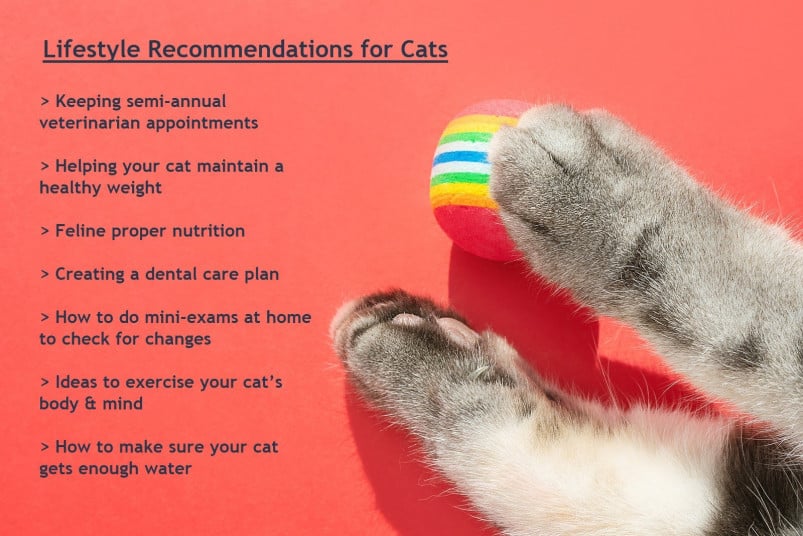
These recommendations are a great starting point when planning for the long-term with your cat – both from a medical and a financial standpoint.
-
Answers the Question, “What Kind of Cat Is That?”
Has anyone ever asked you what kind of cat you have? The Basepaws Cat Breed DNA Test promises to unravel that information. Specific genetic signatures from your cat are mathematically compared to the cat breed database using an algorithm to determine which breeds likely contributed to your cat’s DNA.
It’s important to note: A LOT LESS is known about cat genetics compared to dog or human genetics. This makes it harder to accurately identify breed signatures. Another important fact is that most cats do NOT have purebred parents, unlike many dogs. This also makes breed identification more difficult.
Learn Your Cat’s Breed Profile With Basepaws!
What Long-Term Plans Should You Make For Your Cat?
The results are pretty comprehensive, but you can see from the image above, that Basepaws do a good job of breaking them down into manageable chunks so you can skip to the sections you’re most interested in.
The results tell a story, which makes the material more interesting and engaging. I certainly learned a thing or two about feline evolution and domestication from reading these results. I do wish the report included more visuals, more interactive components, and less text overall. However, that downside is easily offset by getting a call with a vet to answer all of your questions.
| RESULTS DELIVERY | REPORT SHARING | VET ACCESS |
| email, link | No button, but it’s encouraged & allowed | Yes |
BREED TEST RESULTS – What Breed Is Your Cat?
Because uncovering cat ancestry is difficult, Basepaws developed a strategy to first group similar breeds together into categories. Then they compare your cat’s DNA to each of the four groups, and to each breed within each group. The four breed categories, and the breeds, are as follows:
- WESTERN: American Shorthair, Maine Coon, Abyssinian, Ragdoll, Russian Blue, Siberian, Norwegian Forest Cat
- EASTERN: Birman, Peterbald, Burmese, Oriental Shorthair
- EXOTIC: Bengal, Egyptian Mau, Savannah
- PERSIAN: Persian, Himalayan, British Shorthair, Exotic Shorthair
We rescued Zeus from a shelter 12 years ago. People ask what kind of cat he is because of his long, thick fur and vocal behavior. A common guess is part-Persian, although I always thought he was part Maine Coon myself.
Our Basepaws results showed Zeus is: 43% Western, 10% Eastern, 7% Exotic, and 14% Persian, the rest is considered “polycat.” Polycat means that multiple breeds contributed in a small percentage, or the other data still has too much variation to be able to pinpoint breed identifications with confidence.
From the Western category, Zeus first matched with the American Shorthair Breed (surprising since he doesn’t have short hair) and the Maine Coon Breed as numbers 1 and 2. After speaking with customer service, I now understand that these are his top 2 contributing breeds. The top breed for the “Eastern” category probably still contributed less than the other breeds listed in the “Western” category.
The other neat feature in the results is the chromosomal map from the cat breed categories. Look to the picture on the right. The blue color is the portion of the chromosome that matches “Western” cat genetics, the red color is for “Eastern”, Gold is for exotic, and green is for Persian. It’s an interesting way to visualize your cat’s genetic diversity.
Zeus’ report shows that he’s most genetically similar to a cheetah, then a cougar, leopard, and tiger. I can “see” the cougar and leopard because he has a big tail and loves to climb.
Discover Your Cat’s Breed Profile With Basepaws!
HEALTH & WELLNESS TEST RESULTS – Is It Time To Call The Vet?
Basepaws scans over 20,000 feline genes to look for mutations that may contribute to genetic diseases. Each result tells you a few key pieces of information that make it actionable and easy to understand:
- The inheritance pattern for the condition
- A brief description of the condition
- If you need to contact your vet based on the results
Let’s take a look at Zeus’s results:
Overall, he tested “Clear” for 38 of the 39 mutations that the Basepaws Health Panel screens for. However, he does have one variant that Basepaws suggests we call our Veterinarian about.
Zeus has one copy of a mutation in the MYPBC3 gene, which puts him at increased risk for developing hypertrophic cardiomyopathy.
Basepaws health results include lots of information that’s useful for both cat owners and veterinarians. For example, it gives a short disease description (for the owner) and then the genetic mutation, gene, etc. for the vet. It also gives a little background on how the diseases are inherited.
In Zeus’s case, I agree with the breed test results that he’s probably part Maine Coon, and the mutation he has is common in that feline breed.
In addition to the genetic health report, the Basepaws results also include lifestyle recommendations for your cat, as mentioned earlier.
Uncover Your Cat’s Health Risks With Basepaws
Lots of Info at a Good Price
Basepaws is among the best cat DNA tests – and, it’s good value. Basepaws is priced similarly to top human DNA test kits, like MyHeritage, and the best canine DNA tests, Embark, and Wisdom Panel.
For the most part, the results packages are also quite similar. Basepaws offers less ancestry information compared to human and canine DNA tests, but it also does a good job of explaining why there is less known about feline genetics and how that impacts the results.
Accepted payment methods include: Shoppay, Google Pay, PayPal, and Amazon Pay, or major credit cards. Or, if you prefer, you can split-pay in four easy payments via Quadpay. Be sure to check for discount codes and ways to save - there are usually some available. For example, multi-pack test kit options can save you 20%, and there’s a 4% cashback offer.
Note: shipping costs extra if you are located outside of the USA.
| PAYMENT METHODS | DISCOUNTS? | SUBSCRIPTIONS? | UPGRADES? |
| Shop Pay, Google Pay, Pay Pal, Amazon Pay, and credit cards | Multiple pet, cashback, discount codes | Yes | Yes, can upgrade to full genome sequencing |
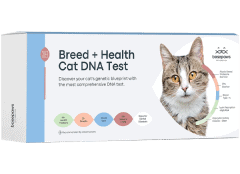
Basepaws Has Great Customer Service
Basepaws ensures customers are well cared for. As a customer, it was easy to get in touch. You can reach out through email, phone, snail mail, or social media. Basepaws maintains social media profiles on Facebook, Twitter, Instagram, and LinkedIn. It also has an extensive blog, FAQ section, and a library.
While researching Basepaws, I reached out to customer service via phone twice - both times were to check about my getting my results (it took FOREVER for the results to come!). Both times the phone was answered, and the hold-ups in results processing were explained.
| SUPPORT OPTIONS | HOURS OF AVAILABILITY | SOCIAL MEDIA | FAQ PAGE or KNOWLEDGE BASE | BLOG | VIDEOS or TUTORIALS |
| Phone, snail mail, email, social media | 9:00 am – 5:00 pm EST | Facebook, Instragram, Twitter, LinkedIn | Library & FAQs | YES | step – by – step tutorials |
Get the Best Basepaws Deals Today!
Can Basepaws Uncover Your Cat’s Secrets Too?
Basepaws is a great choice for most cat owners – whether you’re curious about breed identifications, genetic health risks, or planning for the future. Basepaws consistently ranks as one of the best cat DNA tests.
If you are a cat breeder or own a purebred cat, you may want to consider other options too. One to look into is Orivet, which offers parentage and lineage testing. This can give you specific insights beyond those from Basepaws, in limited circumstances. If your cat came from a shelter, rescue, farmer, or another non-breeder source, Basepaws is probably your best bet.
Does your cat experience digestive, respiratory, or skin symptoms? If so, you may want to check out 5Strands. This company specializes in detecting potential triggers for intolerance symptoms caused by food or the environment. Then, you get a guide for an elimination diet to see if changing your pet’s exposures can help with symptoms.
Overall, Basepaws DNA test for cats gave me many new insights about my cat. I was surprised to learn that he has a genetic mutation that puts him at increased risk for heart disease. In addition, it was fun to find out Zeus’ breed identification.
Uncover the Secrets In Your Cat’s DNA With Basepaws!
FAQ
How does Basepaws work?
Basepaws is a cat DNA test. The steps you take at home are very simple and straightforward. Once you purchase the kit the next steps are as follows:
- Sign up for your Basepaws account and activate your kit
- Collect your cat’s DNA sample using the supplies and instructions provided
- Send your cat’s DNA sample back to the lab
- (Wait while the lab magic happens)
- Receive your results report
While your sample is at the lab, it is processed by a team of scientists. First, the DNA is extracted and purified. Then, it gets sequenced and analyzed using an algorithm that compares your cat’s DNA to other known samples of cat DNA (like those from purebred cats).
This mathematical comparison is also why your results might shift over time. As the database gets more and more known samples, the data will cluster together more tightly for certain breeds of cats. That will make determining which breeds contributed to your cat’s unique makeup easier and more accurate. Basepaws continuously updates your breed results for free and will update health and traits reports for a nominal fee.
How accurate is Basepaws?
Basepaws DNA testing for cats is fairly accurate. I’d expect the information about genetic mutations related to health risks to be extremely accurate, and the breed identifications will most likely continue to evolve over the next few years (don’t worry, they update this for free, so you always have the best and most accurate information).
At this point, DNA testing is extremely routine for scientists, and very few inaccuracies are introduced by the lab work. However, there are a couple of factors that can affect the quality of your sample that you should probably know about. A bad sample equals bad results.
- Does your sample have enough high-quality DNA? If the sample is contaminated or you didn’t collect enough DNA to begin with, the results won’t be accurate. Make sure you follow the directions in the test kit.
- How many breeds contributed to your cat’s unique genetic signature? The larger the number of breeds, the more difficult it is to accurately predict the exact contribution for each breed. Basepaws gets around this to some extent by first grouping the breeds into four categories.
As more cats get tested, the accuracy of the tests will continue to improve. It’s also important to note that breed IDs such as “polycat” reflect lower confidence matches, often due to factors discussed above.
What information can you get in a Basepaws cat DNA test?
The Basepaws cat DNA test provides lots of detailed information about your furry friend across a variety of categories, including:
- Breed Identification
- Genetic Health Risks
- Lifestyle Recommendations
The breed identification report gives details about the breeds that contribute to your cat’s unique genetic makeup, down to a tenth of a percent.
The genetic health report reveals your cat’s risk for 43 genetic diseases by testing for 39 different genetic mutations. You’ll get a brief description of the disease and clear directions on when to contact your veterinarian.
Finally, the lifestyle recommendations give you a very clear and realistic picture of the best ways to take care of your cat.
Does Basepaws have a dog DNA test?
No, Basepaws only specializes in DNA testing for cats. However, if you are looking for similar options, only for dogs, you’re in luck. Both Wisdom Panel, and Embark, are fantastic options for most dog owners.
- Wisdom Panel: You’ll get an in-depth breed identification report, genetic health information, and traits prediction. Wisdom Panel also makes a canine family tree that reveals the likely breeds of your pet’s great-grandparents. The interactive traits report is the best part of the results. It’s fun to explore and match the traits to your dog.
- Embark:You’ll get an in-depth breed identification report, genetic health information, and traits prediction. In addition, Embark builds a three-generation canine family tree and has the world’s first canine relative finder. If that’s a draw for you, it’s probably worth the little bit of extra money to go with Embark.

